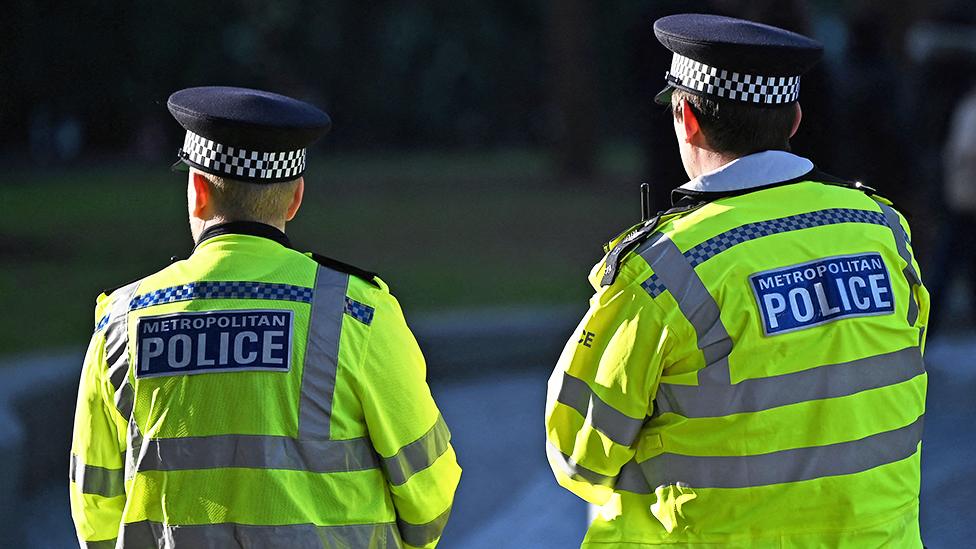1,000 Met Police officers suspended or on restricted duties
- Published
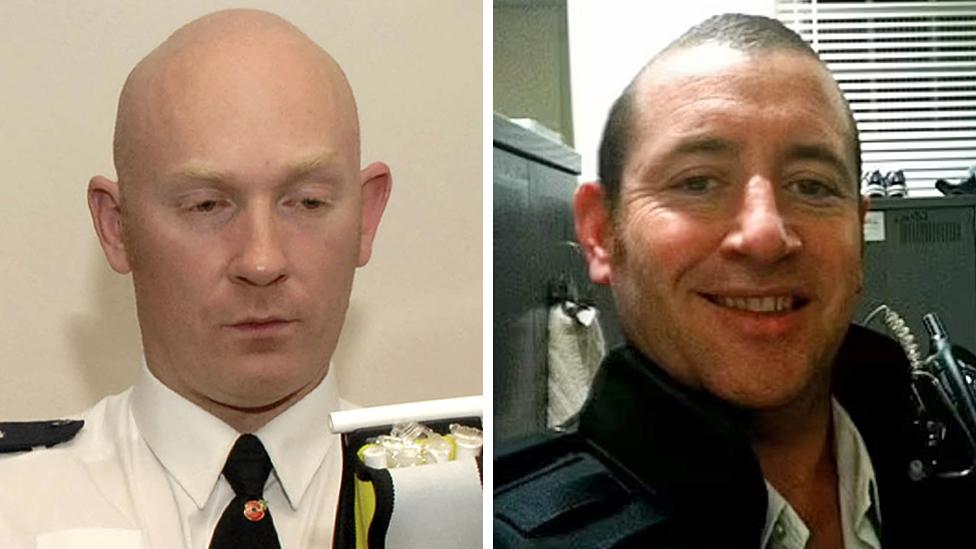
Wayne Couzens (L) and David Carrick (R), both pictured in uniform, abused their positions as police officers
More than 1,000 Metropolitan Police officers are currently suspended or on restricted duties, the force has said, as it tries to root out rogue officers.
The crackdown follows convictions of former officers David Carrick, a serial rapist, and murderer Wayne Couzens.
The Met's Stuart Cundy said the number of affected officers was almost the size of a small police force, with one in 34 suspended or restricted.
He warned that removing all corrupt officers could take years.
In figures described as "eye-watering", the Met - Britain's largest force which employs 34,000 officers - also revealed:
In the past year 100 officers have been sacked for gross misconduct - up by 66% on the normal rate
The 201 officers currently suspended represents a rise from 69 in September 2022
275 are awaiting a gross misconduct hearing, a significant proportion of which involved alleged violence against women and girls, compared to 136 last year
The number of reports from the public and officers of alleged misconduct has doubled
Some 450 are also being investigated for historic allegations of sexual or domestic violence, the force said.
Speaking to reporters at New Scotland Yard, Deputy Assistant Commissioner Cundy said there were plans to hold around 30 misconduct hearings and 30 gross incompetence hearings each month, meaning that around 60 officers a month could face the sack.
"This is going to take one, two or more years to root out those who are corrupt," he said.
"There are also individuals who may have had a false allegation, but they are always going to be small numbers."
Figures released by the force show 183 officers are currently suspended, while 860 are on restricted duties.
The Met has been shaken by a series of scandals in recent years, and was subject to a blistering review by Baroness Casey earlier this year.
Zoe Billingham, formerly Her Majesty's Inspector of Constabulary, warned that the issue was likely to worsen before improving.
"These are eye-watering figures", she told BBC Radio 4's Today programme.
"But we always knew… that the Metropolitan Police's commitment to rooting out corruption would mean that we would see as members of the public more cases coming forward, that the problem would get worse before its get better."
Ms Billingham suggested that Met Police Commissioner Sir Mark Rowley had "absolutely no choice" but to take the action, adding that the force's first priority should be restore trust.
Officers said around one in three staff had been cleared out of the Parliamentary and Diplomatic Protection Command, the elite team in which Couzens and Carrick served.
The unit, which guards sites including Parliament and embassies in London, is made up of around 1,000 officers, three-quarters of whom are armed.
Baroness Casey singled the unit out for particular criticism in her review, describing an unhealthy culture in which offensive comments were seen as banter and supervision was minimal.
Under new reforms, officers will not be able to remain in the squad indefinitely, and will instead be rotated around to other parts of the Met every eight years.
Couzens was given a whole-life sentence for the murder of Sarah Everard in 2021, while in February serial rapist David Carrick was handed 30 years for attacks carried out against a dozen women over two decades.
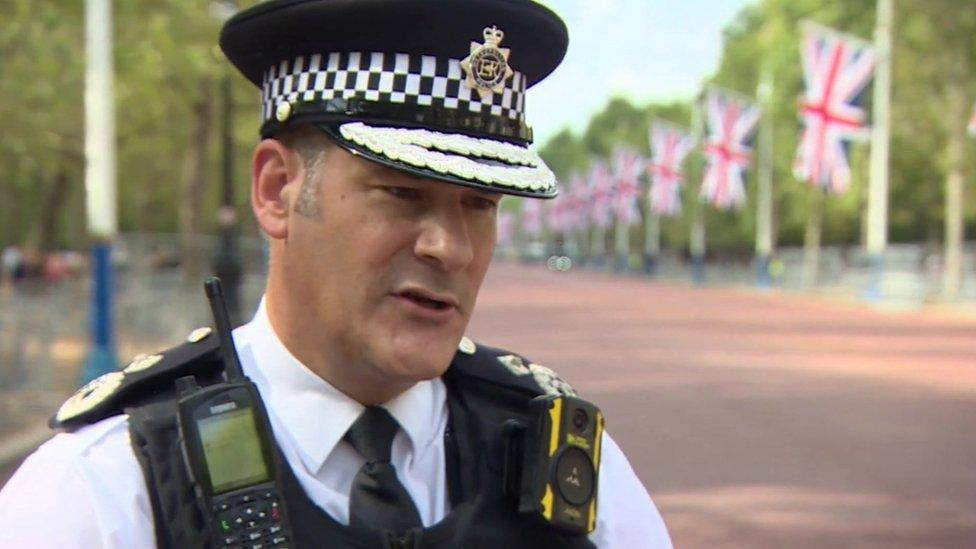
Deputy Assistant Commissioner Stuart Cundy said around 60 officers per month could face the sack over the next two years
Following Carrick's conviction, reviews were conducted of some 1,600 cases in which officers faced allegations of domestic or sexual violence but no action was taken from the last 10 years.
Investigations into 450 of those cases are ongoing.
The force has also checked all officers against records on the police national computer, uncovering 11 cases which were subject to further assessment and five which are now gross misconduct investigations.
Details of all Met employees, both civilian staff and police, were also checked against intelligence records on the Police National Database.
Fourteen are under further investigation for potential gross misconduct, with more due to be added. The most serious of all the cases reviewed involved rape allegations.
On Monday, Home Secretary Suella Braverman announced plans to make it easier for police chiefs to sack rogue officers, including introducing the presumption that anyone found to have committed gross misconduct will be sacked.
Earlier this year, Met Commissioner Sir Mark said it was "nonsensical" he did not have the power to sack staff.
He told BBC Radio London, the force had "hundreds of people who shouldn't be here".
"In all cases, I don't have the final say on who's in the Metropolitan Police. I know that sounds mad, I'm the commissioner," he said.
Sir Mark highlighted how independent legal tribunals can decide the Met has to retain officers even if the force wants to sack them.
Last month, the Home Office announced, external that "chief constables (or other senior officers) will also be given greater responsibilities to decide whether officers should be sacked, increasing their accountability for their forces, and will now chair independent misconduct panels."
Related topics
- Published12 September 2023
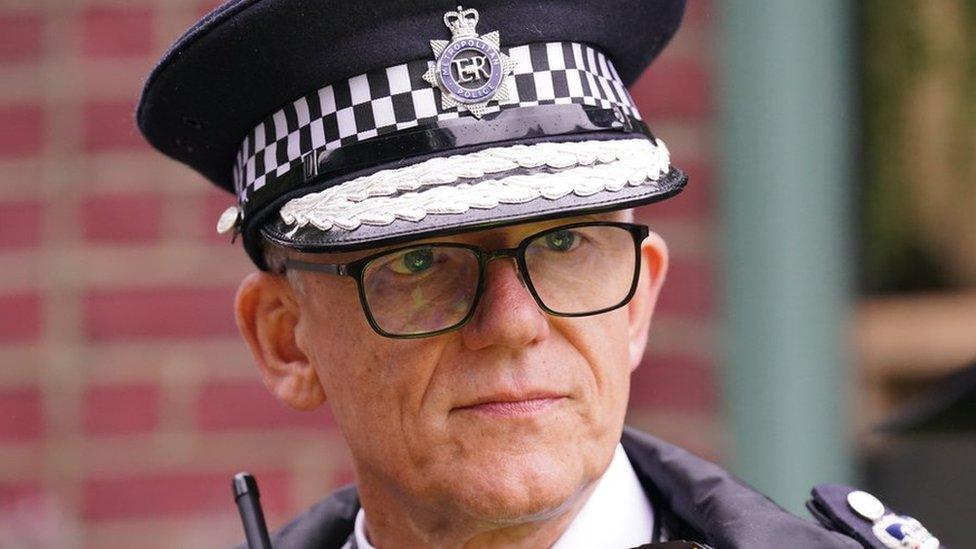
- Published31 August 2023
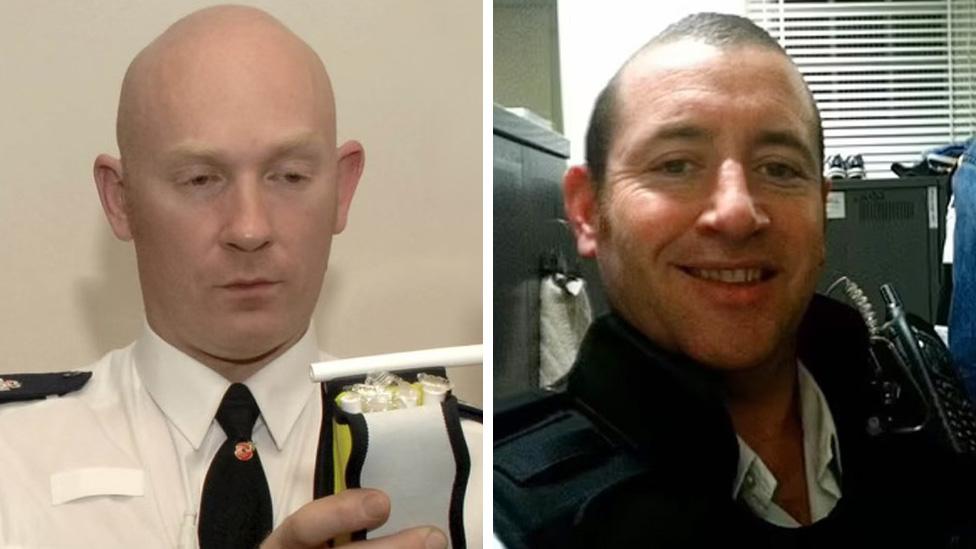
- Published28 June 2022

- Published7 October 2022
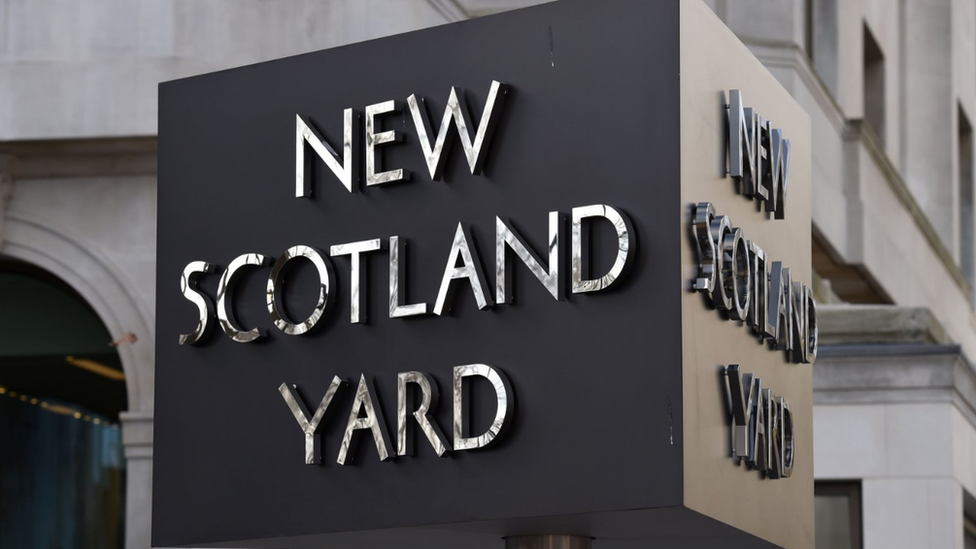
- Published22 February 2023
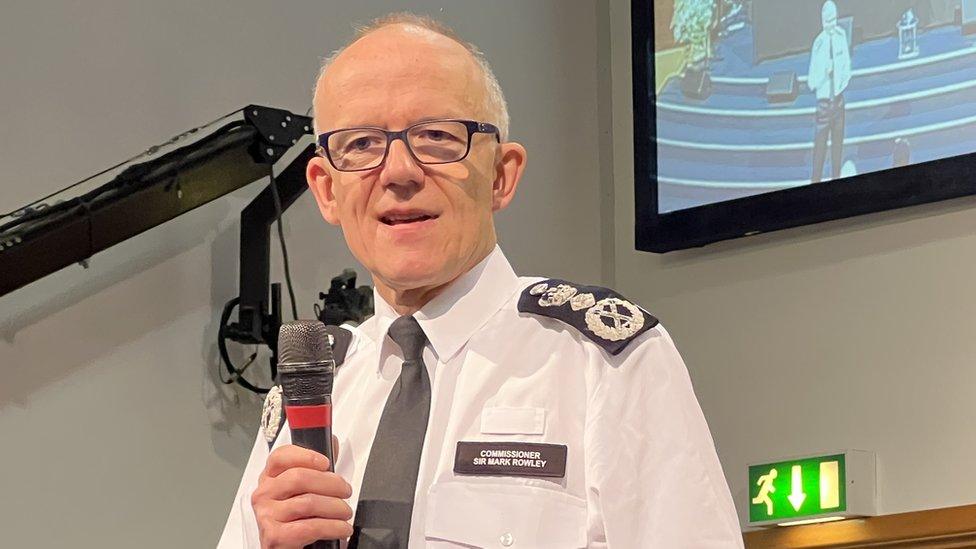
- Published29 March 2023
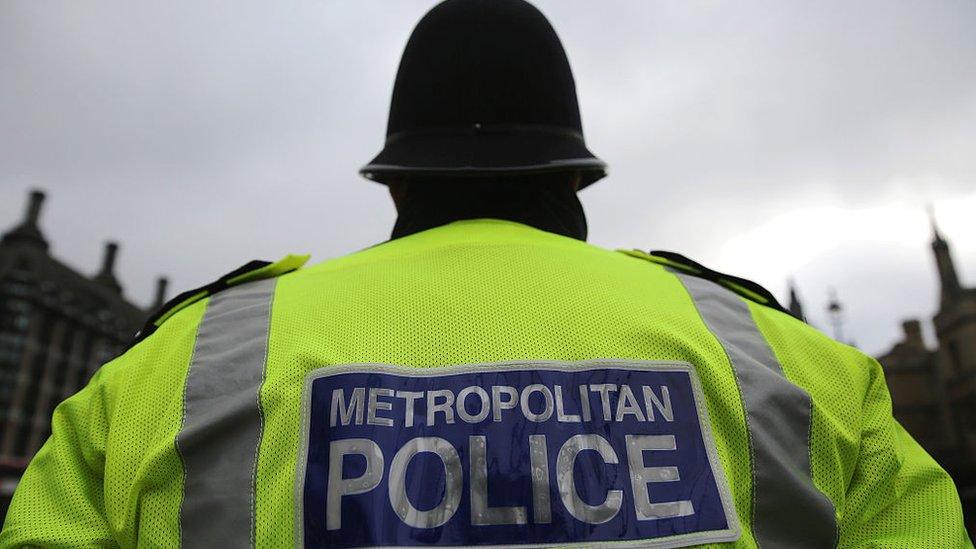
- Published21 March 2023
